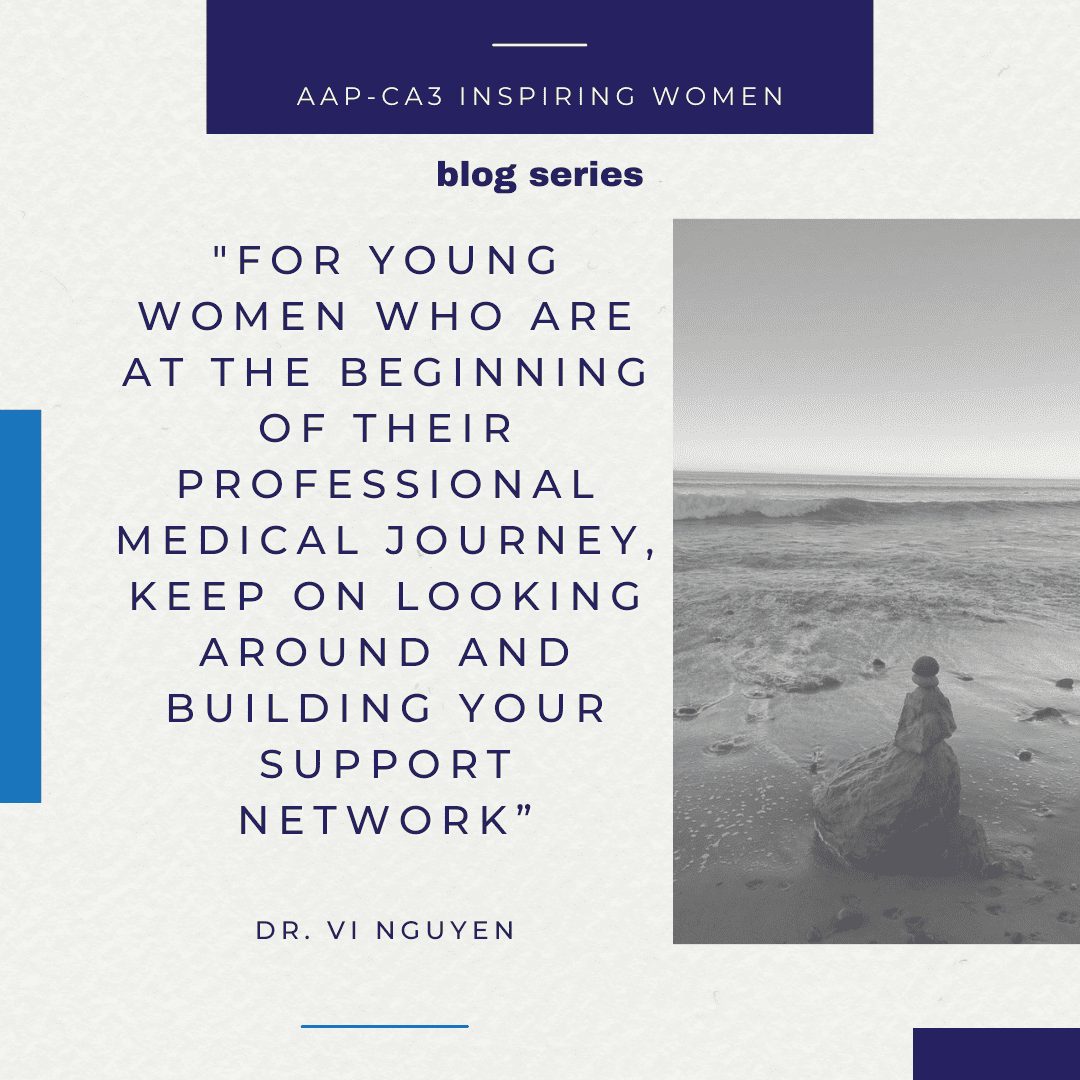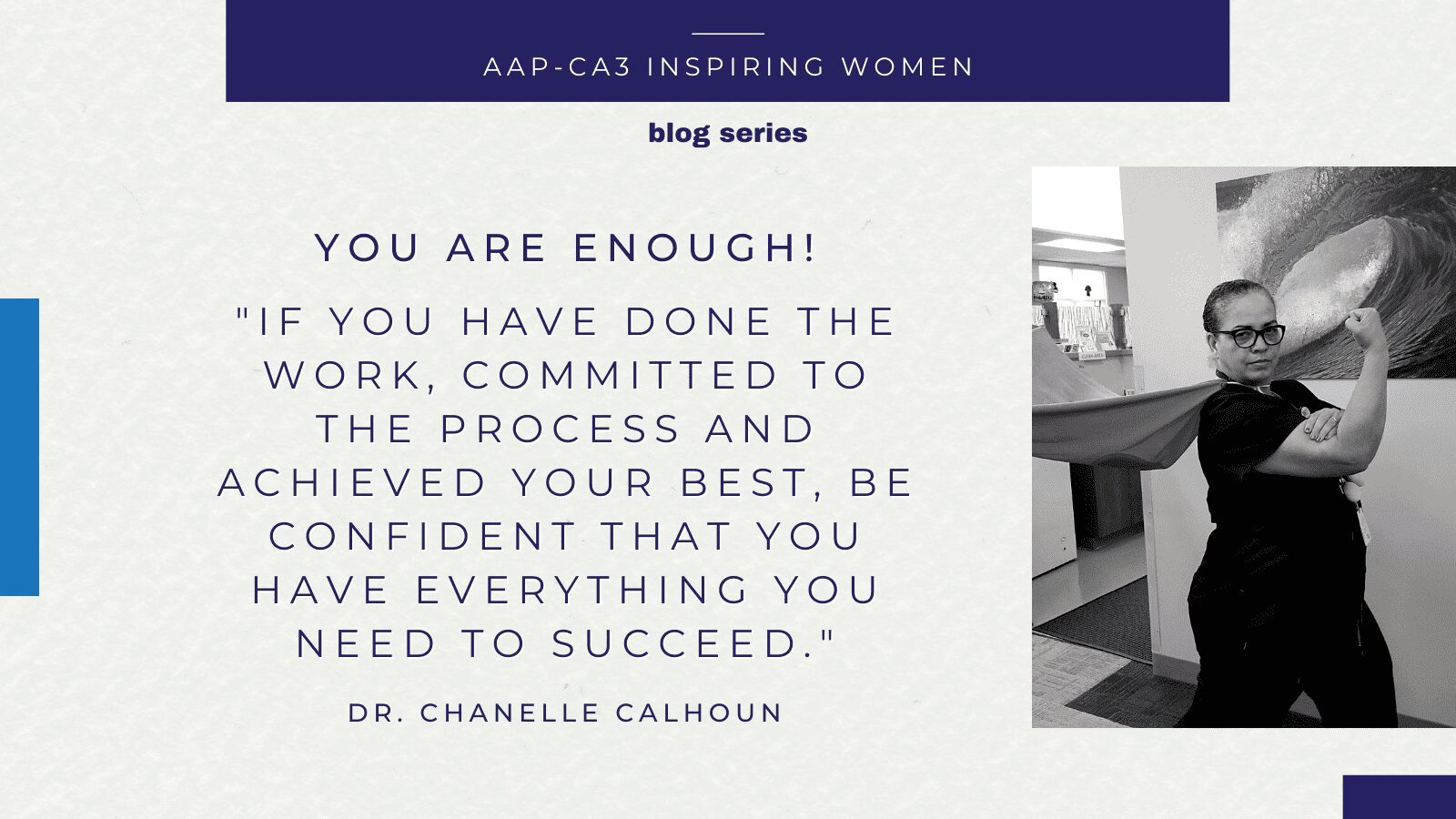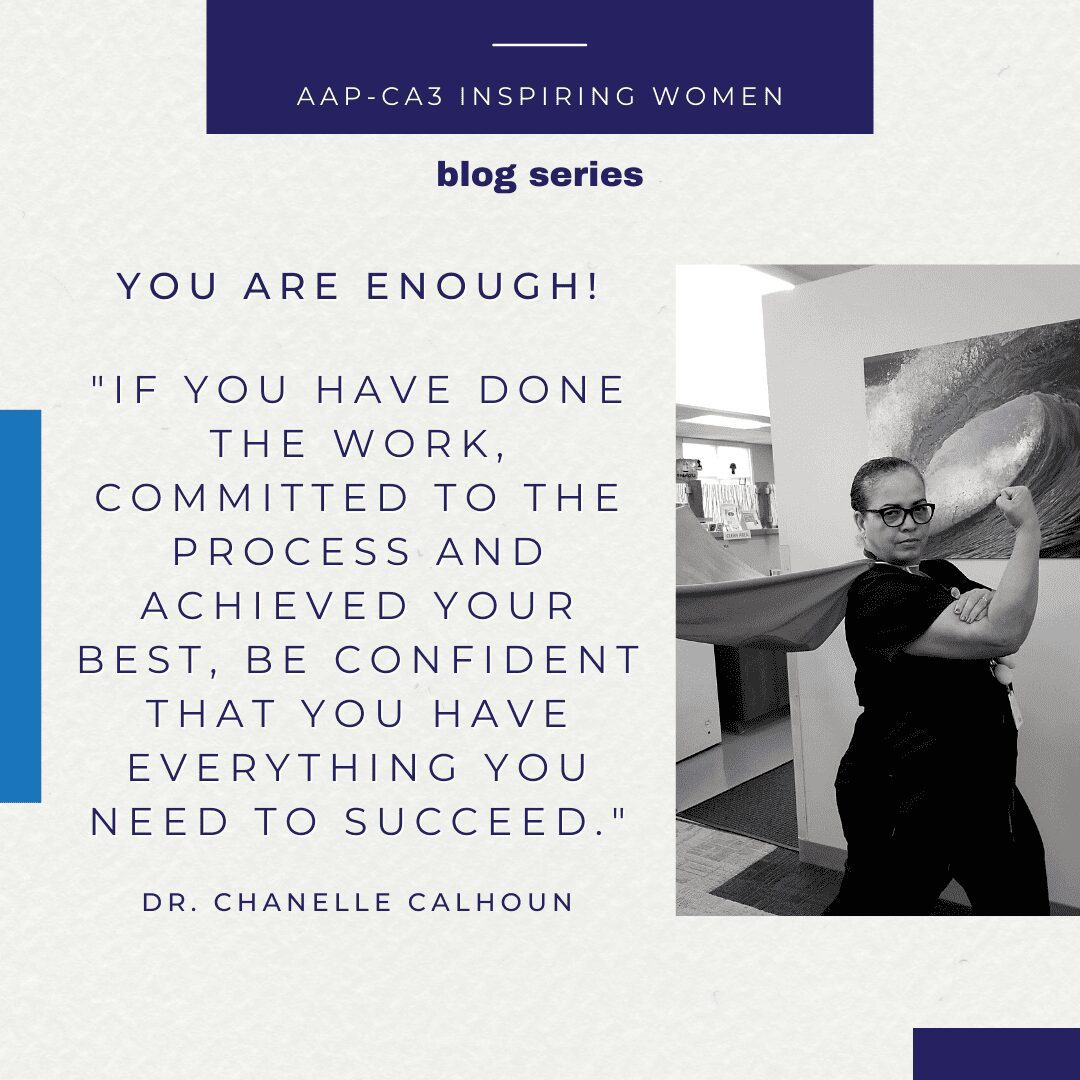


AAP-CA3’s Inspiring Women Feature on Dr. Vi Nguyen
March 22, 2022


Congratulations AAP-CA3 2021 Chapter Award Winners
April 22, 2022AAP-CA3’s Inspiring Women Feature on Dr. Chanelle Calhoun
For Women’s History Month, we are recognizing the chapter and board members who are making AAP-CA3 history.
Dr. Chanelle Calhoun, MD, FAAP, is a pediatrician at TrueCare Mission Mesa Pediatrics after studying at University of Southern California and training at Children’s Hospital Los Angeles. Dr. Calhoun shares her journey through medical school while pregnant, her role models, and why representation on boards is so important.

When did you know you wanted to become a doctor/pediatrician?
“I didn’t have many interactions with doctors as a child. I can recall receiving kindergarten immunizations and a sports physical. I first thought of being a doctor when I took anatomy in high school. The teacher was inspirational and made the dissection so interesting. He encouraged me to consider a health career given my new affinity for anatomy and physiology.”
Why did you choose pediatrics?
“I first thought that I would choose Internal Medicine. Many of my family members died prematurely due to preventable diseases. I wanted to have an impact on health care disparity in my community. Prior to medical school, I obtained a Master’s in Public Health in Health Care Administration as the start of my career in community medicine providing the foundation for my academic training. After my primary care clinical rotations, I surmised that I could have a greater health care impact by starting with children.”
What was the journey through medical school and residency like for you?
“It started off unexpectedly. I learned I was pregnant a few weeks before starting medical school. I was briefly frightened by the challenge of medical school as a single mother. However, my father and extended family pledged to support me through the process. I could not fail. I had to succeed for the sake of my son.
There were not many people of color in my class, but we were like a family. I became active in Student National Medical Association (SNMA) and eventually was the Regional Director, allowing me to engage with medical students across the country. I felt more equipped to support other students of color in their pursuit of a medical career.
Residency at Children’s Hospital Los Angeles was everything. All consuming, exhilarating, exhausting and at times, scary because there weren’t the same regulations. Again, I was fortunate to have amazing residency mates, advisors, and staff. My love for pediatrics blossomed at CHLA where the singular focus was on children. I have so many precious memories of my time there.”
Who are some of your role models and why?
“My first role model was my father. He was a single Black man raising me in the 60s. He did not finish high school, but eventually came to own a successful aerospace manufacturing business. He taught me about service, determination, and the importance of being present. Althea Alexander, a former Dean at USC SOM was one of the first African American women in medical education that I met. Her outreach to students like me gave me the confidence I needed to support other students pursuing a career in medicine. Mrs. Morris, a leader at the first church I attended, taught me the foundations of my faith and how to share with others. Dr. Sylvia Micik, a former CMO at my work, groomed me to become a leader and set me on a path to grow a new practice.”
What are some of the leadership roles you currently hold, and can you speak to the importance of having more women on boards?
“I am currently the Clinical Director of Pediatrics at TrueCare. I also serve as advisor to the OUSD School Nurses and the OHS Health Academy. Women are essential to the success of any Board. They bring a perspective and experience that is key to an organization’s success. Companies with more women on their board perform better than those without. They bring the voices that represent a broad swath of consumers and clients. They bring competencies that help create an organizational culture that values and encourages diversity.”
What advice would you give to women who are going through medical school, residency, or who are considering medical school?
“’You are enough.’ If you have done the work, committed to the process and achieved your best, be confident that you have everything you need to succeed. Surround yourself with supportive family, peers, and colleagues to lift you up and keep you accountable in challenging times. Stay true to your source of inspiration and motivation be it faith, service, or community.”


